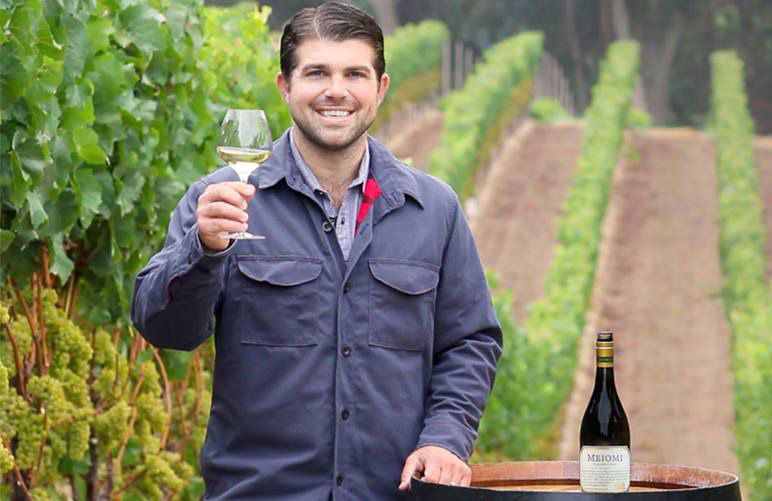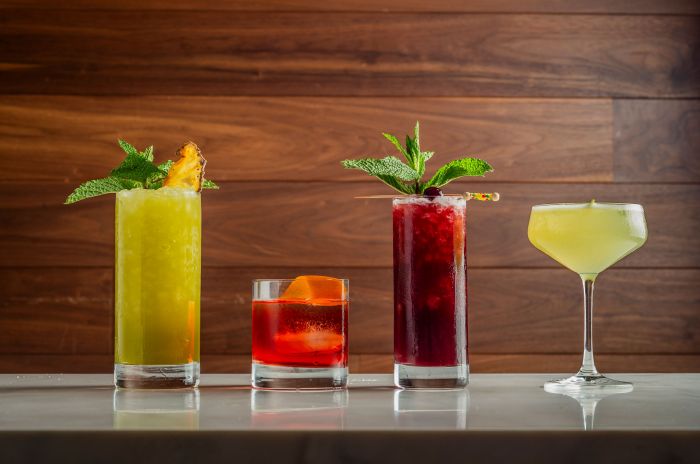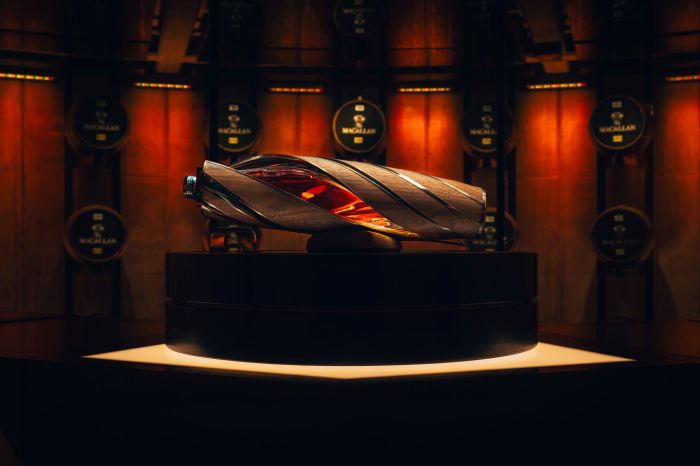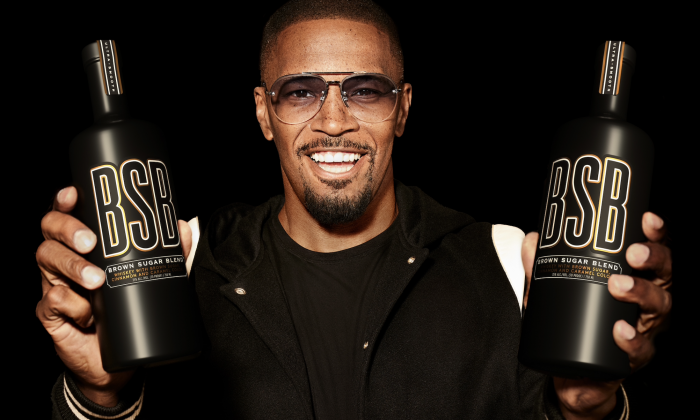
Some people are drawn to the world of wine by chance and others are quite literally born into it. Joseph Wagner is the latter. Following in the footsteps of four generations of Napa Valley-based winemakers (the Wagner Family of Wine), Joseph got his start in vineyard management before taking what he learned to found his own company, Belle Glos, in 2001. The fifth-generation winemaker is now embarking on a whole new venture, Copper Cane Wines & Provisions, which will not only be a home for his Meiomi label, but will also branch out to include a new brand Elouan, a Pinot Noir from Oregon.
With a unique perspective on not only the winemaking side of production in Napa, but also the business side, Wagner was the perfect person to drill for information on everything from wine trends to worrying for his family legacy.

Mila Pantovich: You were born into winemaking, but was there ever a time you thought about a different career path?
Joseph Wagner: Winemaking was something I grew up in and understood at a decent level from a young age. The best way to learn vines and wines is working in it. Working in wine was part of the family life, but before I took it up as a career, I did have other interests. Photography was—and still is—of high interest, along with architecture. I explored those possibilities, but knew that I would stick with carrying on the family legacy at some point and at 20 years old, I got very serious about my future in the wine business and dedicated my life to it. It is a decision I am glad I made at an early age.
MP: How will your new company Copper Cane Wines & Provisions deviate from the work you’ve done with Wagner Family of Wine and your Belle Glos label?
JW: The wines we are producing under Copper Cane Wines & Provisions take the mantra of elevating everyday life with a bit of luxury. […] It’s not cheap to make a great wine and it all starts with where you grow your grapes. When working in coastal regions, the relationship between yield-per-acre and quality can vary widely from year to year, but those are the only areas to properly ripen the varieties we are working with. We believe the site of the vineyard, the farming practices and picking decisions are the foundation of the wine. If you start there and have sound winemaking practices that respect the natural characters of the grapes, the possibility of creating a great wine is there.

MP: What is your winemaking philosophy and what do you want to achieve?
JW: We grow our grapes in California, so we have ripeness in our favor. Working with that in the cellar, it becomes a process of what I call reactive winemaking. No two fermentations are equal, so no two fermentations should be treated the same. My philosophy is to be involved with each fermentation lot: tasting every day, smelling the tanks multiple times a day, and adjusting our work around what the best options are. There is a line between over-extraction and under-extraction that we want to balance upon and that is the core of our style. Beyond that, we use barrels to add interesting elements and allow the wine to mellow and meld the sweet oak components with the berry tones of the wine, but to never overpower the wines natural flavors with oak. We want that sense of place to shine through in the wine—where and how the grapes were grown— [and] each practice should respect that character above all.
MP: Are there any new winemaking techniques that you've experimented with?
JW: We have been toying with “cryo-extraction” for about a decade now with amazing success. Ultimately, our goal is to extract only skin tannin, and mitigate seed characters, which can be green and astringent. When freezing (cryo-extraction) the grapes, the cell walls of the skins burst open making more color, phenolics (mouthfeel components), flavors, and aromatics accessible. Along with this process, we don’t need to overwork the extraction in the fermentation where seeds could lend some negative character. It has been a fantastic way to make great red wines, but we are still working on how to make the process more efficient. There is always something new coming up, and this is one we are still just scratching the surface on.

MP: What have been some of the biggest changes that you've seen in the wine industry and where do you see it going in the future?
JW: Merging the sensory side of winemaking with the analytical side has moved quality forward very rapidly. When I started, it was all sensory…everything based on taste, feel, smell, etc. Now we can correlate the sensory notes to the lab analysis and better understand the details of what we like, and how to do it again. The science has given us the ability to emulate what we liked in one vineyard into another, or to somewhat replicate a style from one wine to another. It has kicked the progress of quality into high gear and I don’t see it slowing down anytime soon.
MP: What changes have you seen come about in California's wine industry (specifically Napa and Sonoma)?
JW: A huge influx of money has come in from around the world. This has beautified and helped protect our agricultural area for the good, but it has also upped the ante in terms of starting a business here. Land values, red tape, etc….it has all added up to an industry with a very high startup cost that handicaps the entrepreneurial side. A young person with a vision will have a very hard time clawing his way to success without taking on substantial debt.

JW: I would also say special interest groups have begun to prey upon the successful regions of Napa and Sonoma. Recently, there’s been a push to turn agricultural land back into natural habitat. We have protected areas, which I am in favor of, but taking the steps to reclaim farm land without any compromise or understanding of the good it brings to the community is absurd. I worry that this [closed-minded], philosophical anti-progress movement will expand and effect the possibility of my children carrying the family legacy on.
MP: In the past there has been a lot of disconnect between the producers and consumers of wine; do you think this has gotten better and why?
JW: The connection between producers and consumers seems to get closer every day. Social media could be the biggest help in this. Making wine less pretentious, and exposing the art of winemaking in a less formal way have pushed the comfort level of consumers to try new things and accept wine as more than a fancy option. It is an everyday libation and only assists in creating a better dining experience and the overall enjoyment of life.

MP: Just a couple years ago the rising alcohol content in wine was a big issue in the industry; where does Copper Cane Wines & Provisions stand on that issue and is there a standard percentage you lead with?
JW: I like and respect both low and high alcohol wines. There is a place for both. Low alcohol wines have certain cuisines they pair great with, while a high octane, rich red can be enjoyed by a campfire with friends. Many sommeliers have pushed low alcohol wines hard and the acceptance is growing. But, with the spirits craze booming and people ordering whiskey neat, the American palate is growing fond of high alcohol. I think this is just the beginning of two extreme mindsets. It will be fun to watch it all play out.
MP: What is your favorite wine that you’ve made and why?
JW: I love making Pinot and Zin. They both react similarly in the sense of being wild fermentations that need constant correction. It puts your skills to the test and always yields something that is unique and carries the locale of where the fruit was grown so well. The expression of site is huge for me and it is why I am drawn to these varieties.














